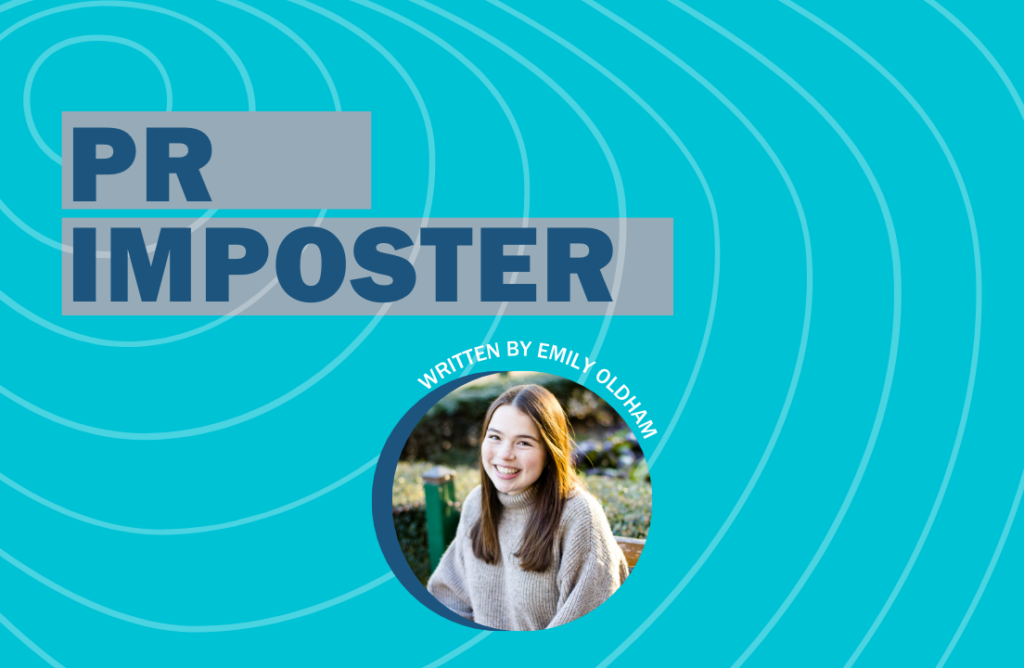PR Imposter

We’ve all been there. It’s your first day on the job. You’re excited and ready to start, but then, the doubts start to creep in. Suddenly you ask yourself, why did they even hire me in the first place? Am I meant to be here? You know you worked hard to get this position, but there’s no way you’re experienced, skilled or qualified enough. You are an imposter.
You’re not actually an imposter, and you were most likely hired due to your fitting experience, skills and qualifications. However, the anxiety that comes with feeling like an imposter overwhelms reason. This is how many young, and even experienced, professionals feel when they start a new position. It’s called imposter syndrome and is recognized in the National Library of Medicine as a “behavioral health phenomenon described as self-doubt of intellect, skills or accomplishments among high-achieving individuals.”
In an industry where broad experience and success are everything, imposter syndrome runs rampant. Public relations students and professionals are often high-achieving, goal-oriented and accomplished. Whether as a company or an individual, the way we are perceived is a crucial part of PR. It may seem surface-level, but it does impact our work. To appease many of the worries and doubts that come with imposter syndrome, here are three ways to help combat it and achieve your full PR potential.
1. Relate
Share how you are feeling with others because odds are, they have felt the same way before. According to a research study done by the National Library of Medicine, up to 82% of the population has experienced imposter syndrome. When you express your feelings of uncertainty to a trusted coworker, friend or family member, it can provide relief from those doubts.
2. Recognize
Look inward. If you are having the feelings associated with imposter syndrome, recognize that in yourself. Use what you know, not what you feel, as a reminder of what you have accomplished and are capable of. Psychologist, Dr. Susan Abers, says, “If your mind says, ‘I don’t know what I’m talking about,’ remind yourself that you know more than you think you do and are capable of learning.”
3. Release
It’s okay to release worries of imperfection. You don’t have to fix everything or be everything to everyone. This act of releasing these stressors does not make you a poor professional, it frees you from constraining roles that may prevent you from succeeding. In an article by the American Psychological Association, Dr. Lisa Orbé-Austin said “people with impostor phenomenon often see themselves as helpers––people who come to the rescue. Breaking free from those roles so
you can be someone who doesn’t know it all or someone who can’t always help can allow us to be more robust people and professionals.”
Imposter syndrome is a real thing that contributes to real feelings of anxiety and stress. We will all, especially as PR practitioners, likely experience it in our lives. By remembering to relate, recognize and release, we can mitigate some of imposter syndrome’s effects.
Emily Oldham is a senior at Samford University majoring in journalism and mass communications with a concentration in public relations and a minor in communication studies. She currently serves as the vice president of Samford’s PRSSA Chapter, is on Samford’s Student Recruitment Team and is the alumnae relations coordinator for Phi Mu Alpha Gamma. If you are interested in contacting Emily, you can find her on LinkedIn.

